What is a Navigational Query?
A navigational query is a search query used by visitors heading to a particular site or webpage. It is used by visitors who want to find a website or online resource they already know about.
Navigational queries typically contain the name of the brand, product, or service the visitor wants to access. This could be:
- The brand name alone, for example, Apple and Rank Math
- The brand name and one or more modifiers, for example, Coca-Cola website
- Multiple brand names. For example, Rank Math Content AI
However, not all navigational queries contain a brand name. Some, such as email login and banking portal, only contain generic keywords indicating the visitor wants to navigate to a specific page or site.
Navigational queries are one of the four types of search queries. The other three are:
How to Identify Navigational Keywords
Navigational queries typically contain branded keywords. That is the name of the brand or business that owns the webpage the visitor is searching for.
In response, search engines will return web pages containing the brand mentioned in the search query. Depending on the query, the search results page may also include news, products, videos, and social media profiles of the product or brand.
For example, Apple’s website and news appear at the top of the search results page when we search for Apple. The page also contains news about Apple, its stock price, and social media handles.
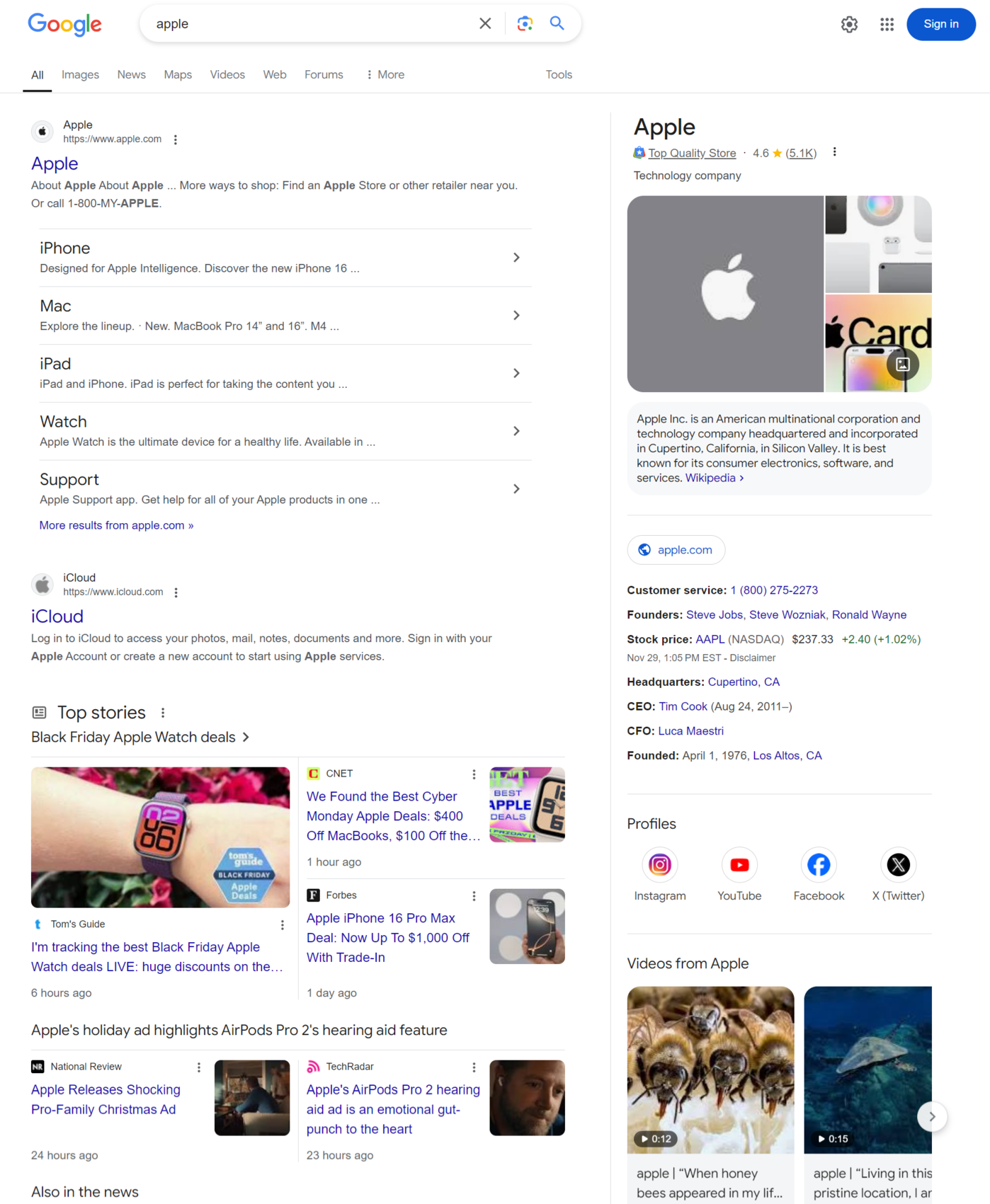
Similarly, Rank Math Content AI’s landing page is shown when we search for Rank Math Content AI.
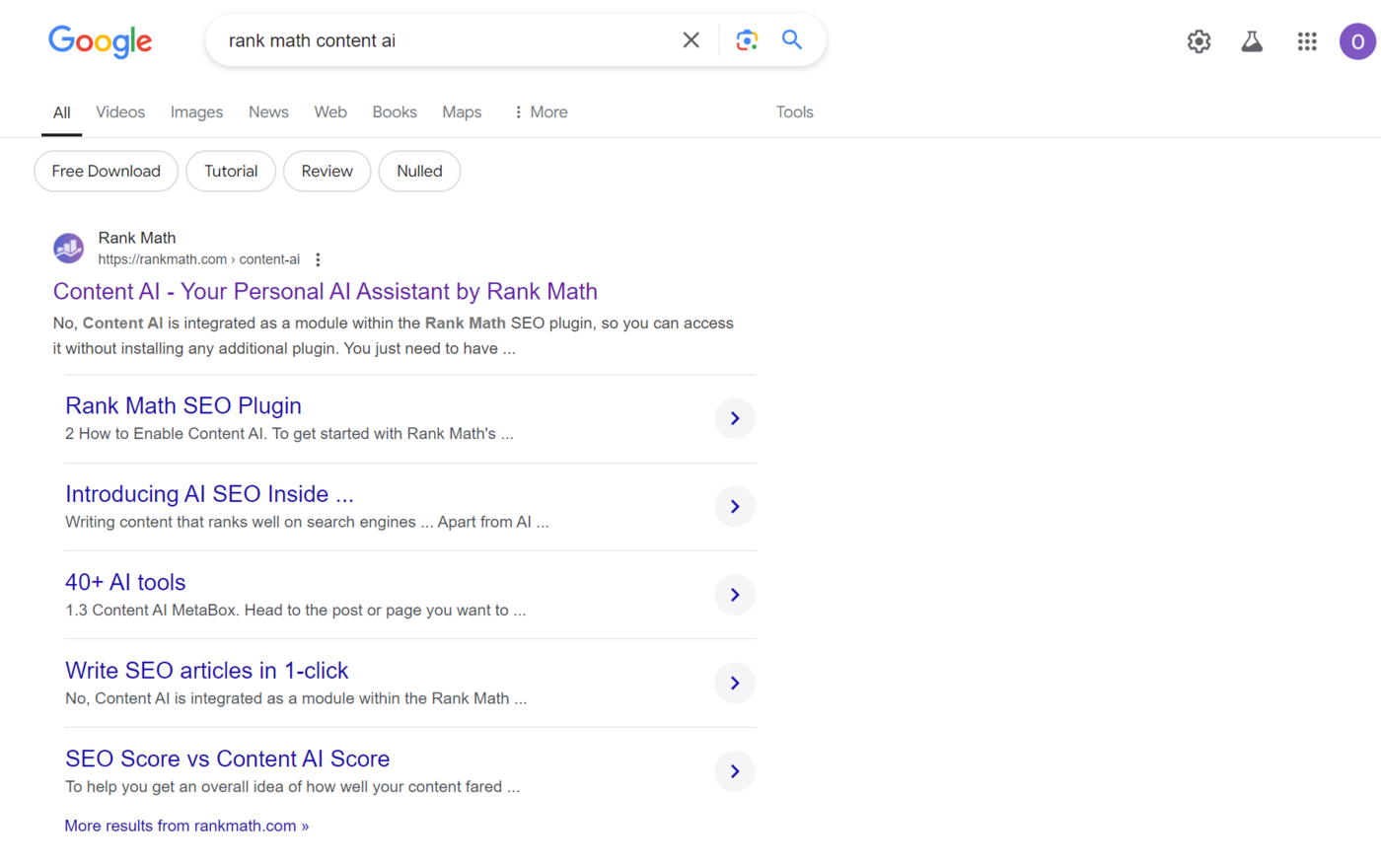
Some navigational queries also contain modifiers. These words provide more information about the brand in the navigational query. For example, Coca-Cola website.
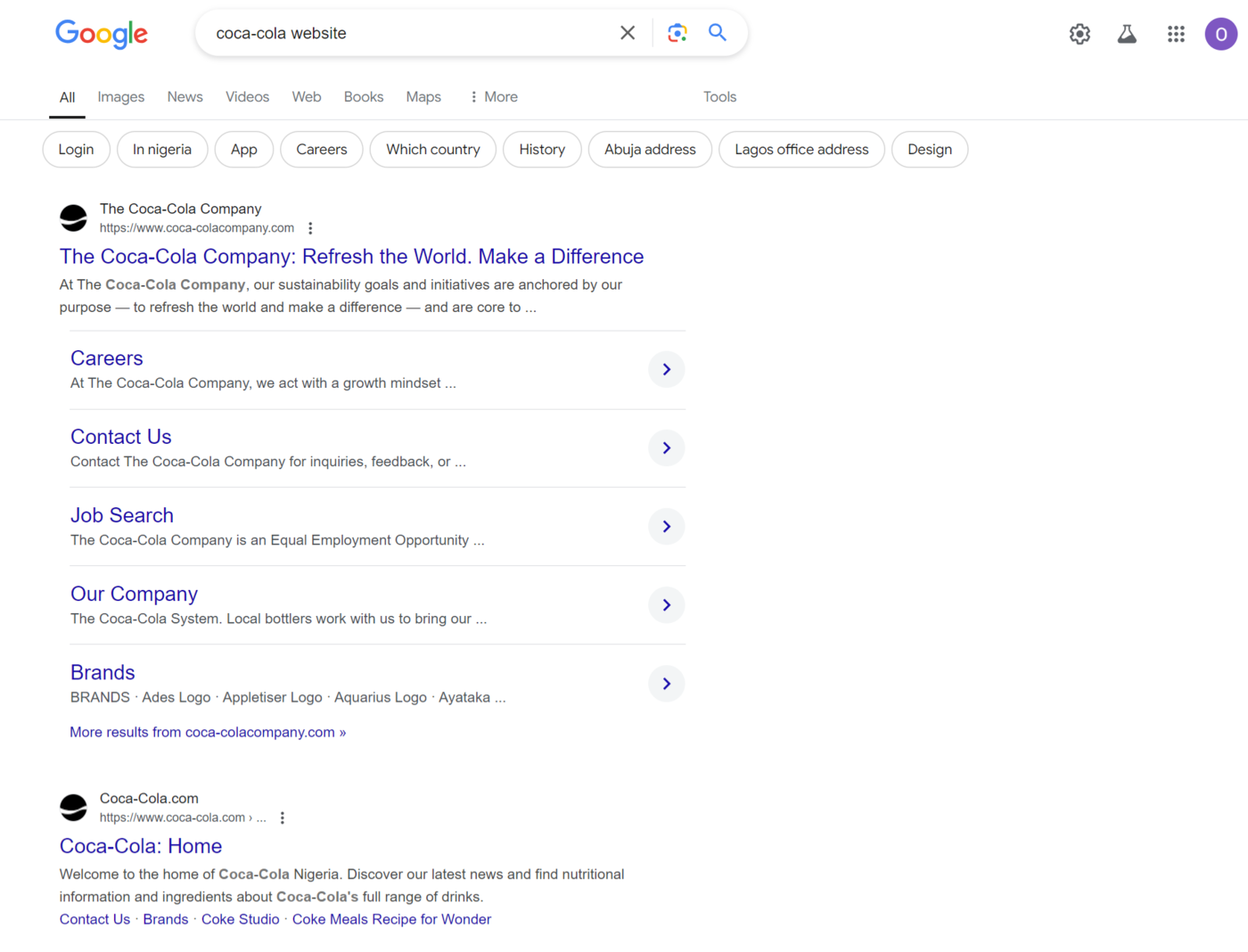
However, not all navigational queries with modifiers are considered navigational. For example, iPhone 16 review is an informational query and not a navigational one, even though it contains a brand name.
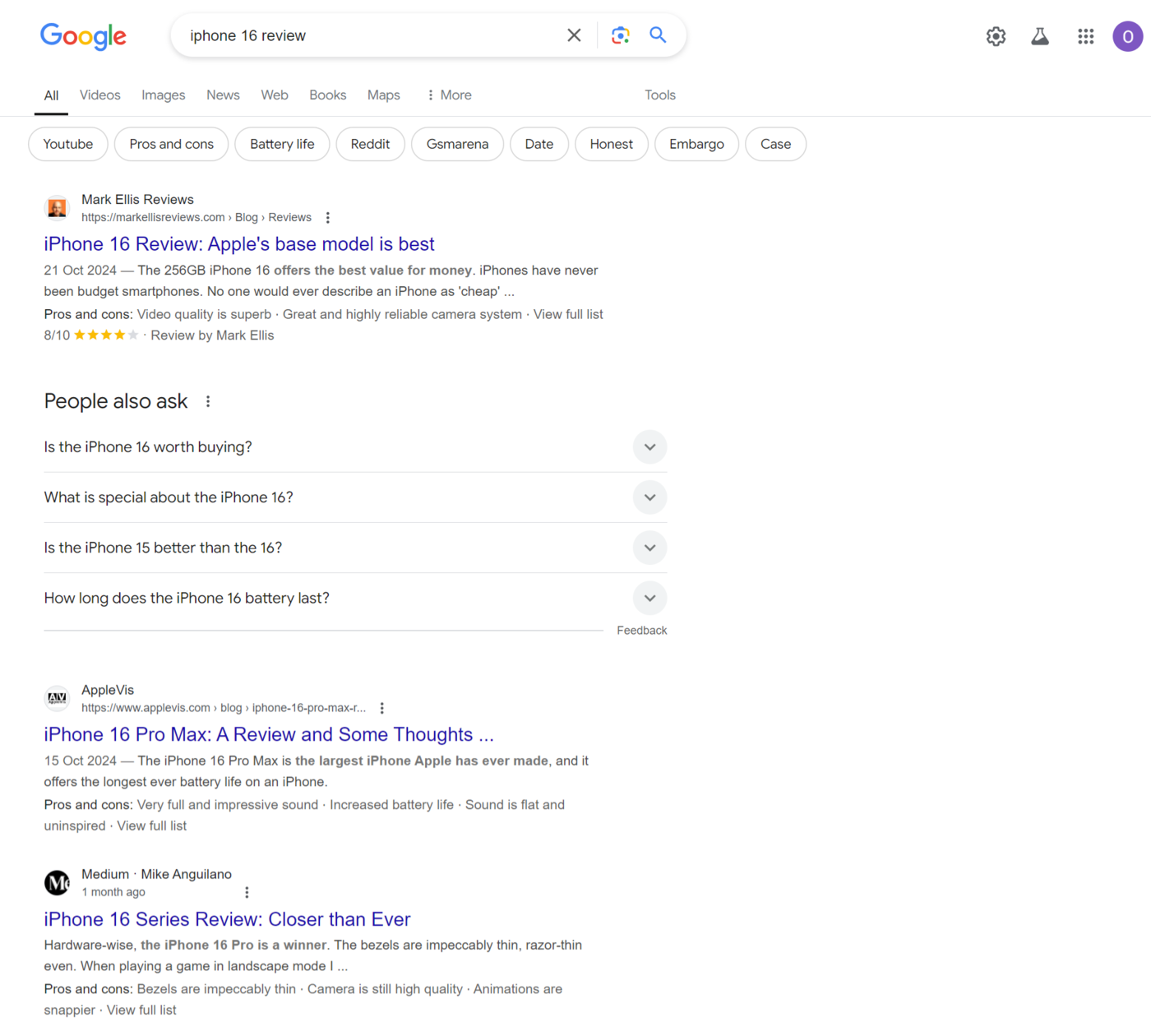
Navigational keywords that do not contain a brand keyword are identifiable by their search intent. Specifically, if the search intent indicates the visitor wants to find a specific service or feature, it is likely a navigational query. For example, online appointment scheduling.
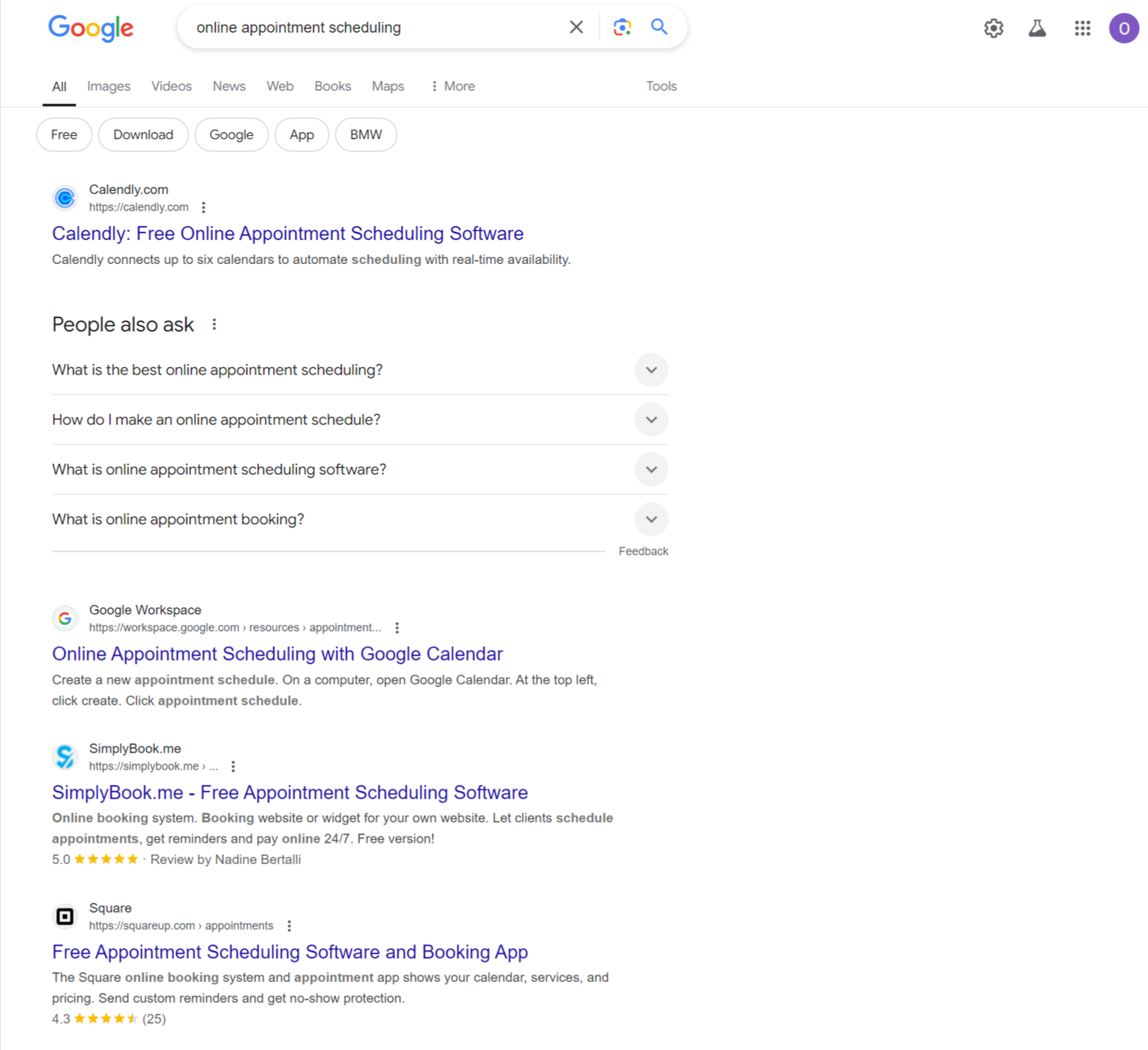
In all, if you are unsure whether a query is navigational, search for it on Google and review the content on the search results page.
Importance of Navigational Queries
Visitors use navigational queries when they know the brand or product they seek but do not know its URL or do not want to type it into their address bar.
Even in cases where visitors know the specific page they want, they may prefer to access it through Google since it is quicker than visiting the site and using its navigation menu and search bar to find the page.
Branded navigational queries indicate a brand has achieved a certain level of brand awareness as visitors remember the name of the brand, company, or product. This makes them a great way to measure a brand’s online presence.
If you run a blog, it is easy for you to rank for your navigational queries. It is also hard for your competitors to rank for your navigational keywords. However, this works both ways, so it is hard for you to rank for your competitor’s navigational keywords.
Why You Should Optimize for Navigational Keywords
It is easy to rank for your navigational queries. You will often find yourself ranking for them even if you did not explicitly create or optimize the content for such keywords.
However, it is a great idea to optimize your content for your navigational keywords. You should also improve your internal linking so that Google can find your content and rank them for your navigational keywords.
This step is essential as some sites may have multiple webpages ranking for the same keyword. Without optimizing their site and content, these pages may compete with one another on search results pages, which may overwhelm and confuse their visitors.
You should search for your navigational queries on Google and see which sites rank for your navigational keywords other than yours. If you have other sites, then you may create content on those sites so that they rank for your navigational queries, too.
Regarding navigational keywords that are not yours, it is hard to rank for them when you are a competitor. However, if you have a third-party site, you create content related to the keyword if it is relevant.
Your likelihood of ranking for such keywords increases depending on how many pages the site has ranking for the keyword. The fewer the pages, the higher your chances of ranking.